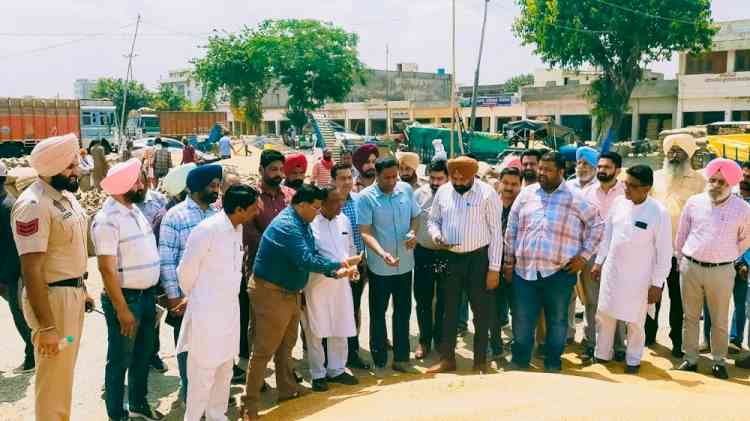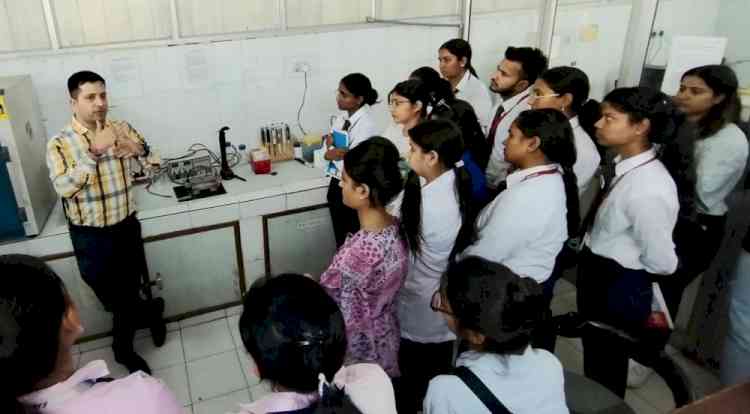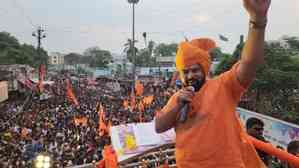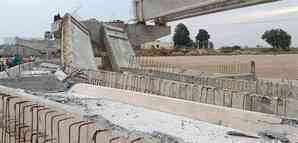Household survey on 500 PDS beneficiaries in slum areas in Chandigarh
Author(s): SK VyasChandigarh 30 March, 2015: Assistant Professor in GCG-11 and Post Doctoral Fellow in the Department of Economics, Panjab University (PU), Dr Seepana Prakasam has recently conducted household survey on 500 Public Distribution...

Chandigarh 30 March, 2015: Assistant Professor in GCG-11 and Post Doctoral Fellow in the Department of Economics, Panjab University (PU), Dr Seepana Prakasam has recently conducted household survey on 500 Public Distribution Scheme (PDS) beneficiaries (BPL 215, PH 142 and APL 143) in slum areas in Chandigarh. Through the present system of physical distribution of four commodities, on an average monthly each household is getting gross benefit (market price × quantity minus PDS price × quantity) of Rs 898.85, percapita monthly gross benefit is Rs 159.37, (mean
family size of poor households is 5.2). Whereas net benefit per household is only Rs 565.53, while percapita net benefit is Rs 110.23 (by subtracting the estimated opportunity cost of waiting time in queue and time taken for travel and expenses incurred for travel) .The majority of the respondents (ration card holders) 435 (87percent) are not in favor of cash transfer, while only 61 (12.2 percent) respondents supported direct cash transfer system and the remaining 4 (0.8 percent) are indifferent.
Cash transfers in Public Distribution System is the transfer of subsidy amount directly into the beneficiary bank accounts is an alternative to the existing physical distribution of commodities at subsidized price through fair price shops by the government. There are some instances of revelation of dissatisfaction in implementation of the present system in many states, Chandigarh is not exception i.e. leakages, corruption, poor quality, wrong weights and measures, inclusion and exclusion errors in identification of poor, information asymmetry, fear of uncertainty of availability of commodities, uncertainty in distribution of number of days, irregular and untimely distribution, wrong timings etc. Moreover customers, including women and children have to stand longer hours in queue even during rough weather conditions and also wastage of man days, lose of study hours , opportunity cost foregone, expenses incurred for travel and transport of the provisions are the reasons for getting lower amount of net benefit under the present system.
Recently central government proposed the direct cash transfer scheme which will going to be implemented during the new financial year in Chandigarh on trial basis is not free from defects. Based on the perceptions of the customers and field level survey experience Dr.Prakasam stated that (1) There is an uncertainty prevailing in availability of work ((unemployment and under employment) and meager earnings of informal migrant workers (casual, self employed and regular temporary workers ), hence at the end of the day no capability to buy food grains from the open market. (2) Money received in lump sum will be spent on unmet number of needs, but once ration is available through PDS, can be consumed during the whole month will ensure food security at some extent. (3) Some of the male counterparts are having habit of spending money on drinking alcohol , without bothering their family sufferings (4) Though cash will be transferred to the bank accounts of female counterparts, in the patriarchal society there is possibility of snatching away money by irresponsible male counterparts , may further cause violence in the family (5) Most of the customers are illiterates have no habit of properly preserving pass books/ ATM cards/ secret pin code (6) Poor households will spend the transferred amount for different purposes, may reduce the consumption of adequate quantities of reasonable quality of targeted goods will further strain nutrition levels & health of women and children (7) There will be general rise in demand for essential commodities in the open market, as a result hoarding and black marketing will be a possibility which will further spurt in prices, may impose burden on almost all the consumers in general and poor in particular due to increase in cost of living in the city.
Leakages can be minimized by strengthening the administrative mechanism, on the other hand by fixing living wages / timely paying commission to the depot owners which is equivalent to the wage rate of class iv employees or else appoint employees in the place of depot owners. Travel and transport costs can be reduced by decentralization of ration depots at different places in the city. Leakages , fear of uncertainty and wastage of time in standing longer hours in queue will be minimized by fixing distribution to a fixed number of households per day and by starting distribution in the morning during the first week of every month under the supervision of government official and an NGO. If implementation of the newly proposed direct cash transfer system is warranted on trial base, there should be a mechanism which is operated by the government to made available these essential commodities at reasonable prices in and around the residential areas, and need of evolving a system to keep an eye on consumption behavior of the targeted population, on the other hand there should be proper control on prices and black marketing of the essential commodities by ensuring monthly payment of the subsidy amount as well as by making adjustment in the subsidy amount at the current rate of inflation. / (SK Vyas, Jalandhar)

 cityairnews
cityairnews 
















